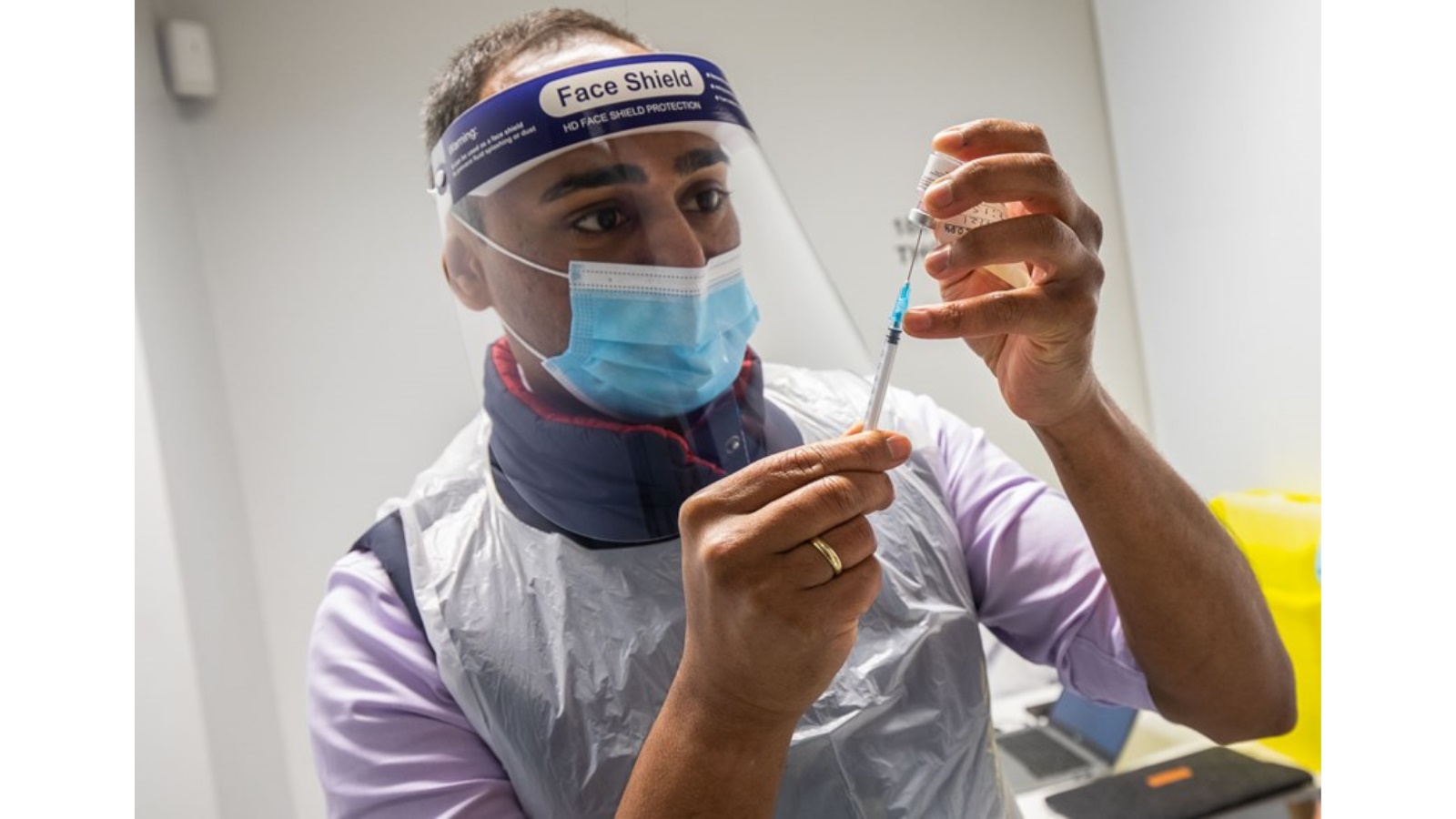
The Royal Free London will be at the heart of research to identify how young people will respond to a third dose of vaccine for COVID-19.
The trust will be one of ten locations in the UK which will be part of the trial to test multiple options for third booster dose COVID-19 vaccines for 12 to 15-year-olds.
The Com-COV 3 study, which is being led by Oxford University, aims to recruit 380 volunteers.
All participants will have received two doses of the Pfizer-BioNTech vaccine, at least three months before joining. Researchers will deliver a third vaccine dose as part of the study, due to open later this summer.
Dr Kin Man, consultant paediatrician and principal investigator for the study at the Royal Free London, said: “It is vital that we understand more about how to give teenagers the best protection against COVID-19, and this study will help us do that.”
Matthew Snape, Professor in Paediatrics and Vaccinology at the University of Oxford, and chief investigator of the trial, said: “This study builds on the important results from previous studies, which have directly informed the national and international use of mixed COVID-19 vaccine schedules. These studies have included teenagers receiving the first two vaccine doses.
“A key question for teenagers now is how well they respond to different options for a third dose of vaccine – and we now need the help of young people in London to help us answer this. If these can be shown to produce a strong immune response with fewer temporary side effects, then this could improve the acceptability and uptake of a third dose adolescent campaign, both in the UK and internationally.”
All participants will be randomly allocated to receive either a full adult dose, one-third adult dose or full child dose of the Pfizer-BioNTech vaccine, or a full dose of the Novavax vaccine. A control group will receive a meningitis vaccine (Bexsero, against MenB bacteria) followed by a Pfizer-BioNTech COVID-19 vaccine later in the study.
The study is single-blind and randomised. This means participants will not know what third dose vaccine they are receiving until three months later. Researchers will analyse for any side effects and immune system responses to these new combinations of vaccines. They will also examine if a one-third adult dose of the Pfizer-BioNTech vaccine is at least as good as a full child dose of the same vaccine.
The study investigators anticipate reporting initial results later this year. The study has been commissioned through the National Institute for Health and Care Research (NIHR).
All those who are interested can register via the study website.
 Translate
Translate